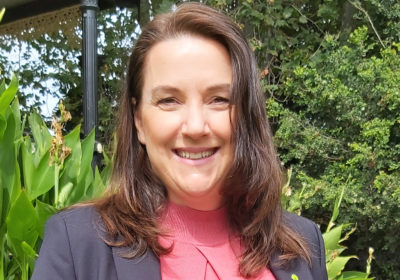
- Author: Kirsty Godfrey-Billy, CFO | Xero
- Posted: August 9, 2022
The Role of the CFO in Sustainability Reporting
The role of the Chief Financial Officer has been evolving for years. One of our core responsibilities is to oversee financial and operational reporting. But the modern CFO must also be prepared to respond to growing interest from stakeholders on their company’s sustainability practices. These days, robust, data-driven reporting is key to building trust with customers, partners, investors and employees.
This is driving public companies to become increasingly transparent as they demonstrate how overall value is created for stakeholders, and introduce greater openness through the inclusion of non-financial disclosures in their reporting. This is top of mind for publicly listed companies like Xero, but it is also important for private companies and small businesses as their customers become more focused on their social and environmental impact. This is why the modern CFO will need to lead reporting on their organisation’s non-financial performance in conjunction with financial performance.
Global trends
Businesses are investing more into their Environmental, Social and Governance (ESG) practices than ever before. Not only because it’s the right thing to do, but because there is growing demand from society for businesses to understand, monitor and manage their impact.
One clear driver is a global push from standards bodies for companies to provide better visibility over how non-financial issues are managed. Global initiatives such as the Task Force on Climate-related Financial Disclosures and the United Nations Global Compact CFO Taskforce are encouraging companies to integrate sustainable practices into all aspects of their business and report on performance.
The other wave of influence we’re seeing comes from a broader set of stakeholders including employees and prospective hires, community groups and the broader societies in which businesses operate. They expect businesses to take responsibility for their impact, report with transparency and engage seriously with these issues.
Companies can disclose their ESG performance in many ways. This includes traditional sustainability reports, released separately from a company’s annual report, or as an integrated report, combining financial and non-financial indicators into a single document. Non-financial information could be about a company’s carbon footprint, their diversity and inclusion targets and measurements, governance structures or metrics and information on many other ESG issues. At Xero we’ve taken an important first step towards aligning our reporting with the Value Reporting Foundation’s Integrated Reporting Framework. While this is just the beginning of our journey, we’re proud to be providing a more holistic and transparent view of Xero’s performance for anyone interested to read and understand.
Typically companies disclose performance data under the three ESG pillars – Environmental, Social and Governance. For SaaS companies like Xero, our focus areas include how we manage our people and supply chains, energy consumption, carbon impact, cyber security and data privacy. This compares to companies in other industries who might be more focussed on issues such as water usage or land management.
Role of the CFO and data driven transparency
In many ways sustainability reporting is a natural extension of the CFO’s remit. Your business’s non-financial performance should be held to the same standards as your company’s financial performance. Robust and transparent data is crucial because it builds trust, even if your company has fallen short of targets. When you’re prepared to be held accountable in these new areas, and can accurately measure and report these non-financial metrics, it builds credibility for a company. An integrated report, or sustainability report is not an advertisement – it is a true reflection on how your company performed in the space.
Without the necessary rigour, companies run the risk of losing the trust of investors and stakeholders. High quality metrics can also be used internally to manage and monitor your performance, support accountability and ensure you’re making the right decisions for your business.
The CFO and the broader finance team are the powerhouse behind financial reporting. By leveraging their expertise, together with the specialist skill set of sustainability teams, they can play a key role in compliance with emerging frameworks. By placing responsibility with the CFO and finance team, companies are demonstrating that they are taking sustainability, and non-financial metrics as seriously as their financial metrics.
Sustainability experts not only guide the business in decision making and understanding reporting frameworks, their expertise is important for supporting finance teams and senior leadership.
Integrating sustainability into your business
Reporting on sustainability in a quantitative way for the first time can be a daunting task – not only because of the time and resources required to get it over the line. There may also be a fear of the market response, that a company will be punished for transparency rather than rewarded for it. Xero took a huge step forward in our integrated reporting journey in 2022 with the release of our FY22 Annual Report.
In order to affect this change, it helps to integrate sustainability into a company’s ethos and everyday practices.
Conclusion
So what does success look like? In a broad sense, ultimate success is that we can continue to create value for our stakeholders in a sustainable way. In the near term, success means having an understanding of what the key ESG risks are to our business and having a plan in place to manage them. These controls should be tested regularly, and KPIs put in place to measure the business’s performance. Publicly reporting your ESG performance is absolutely worth the effort it requires, and gives a broader picture of organisational performance.






